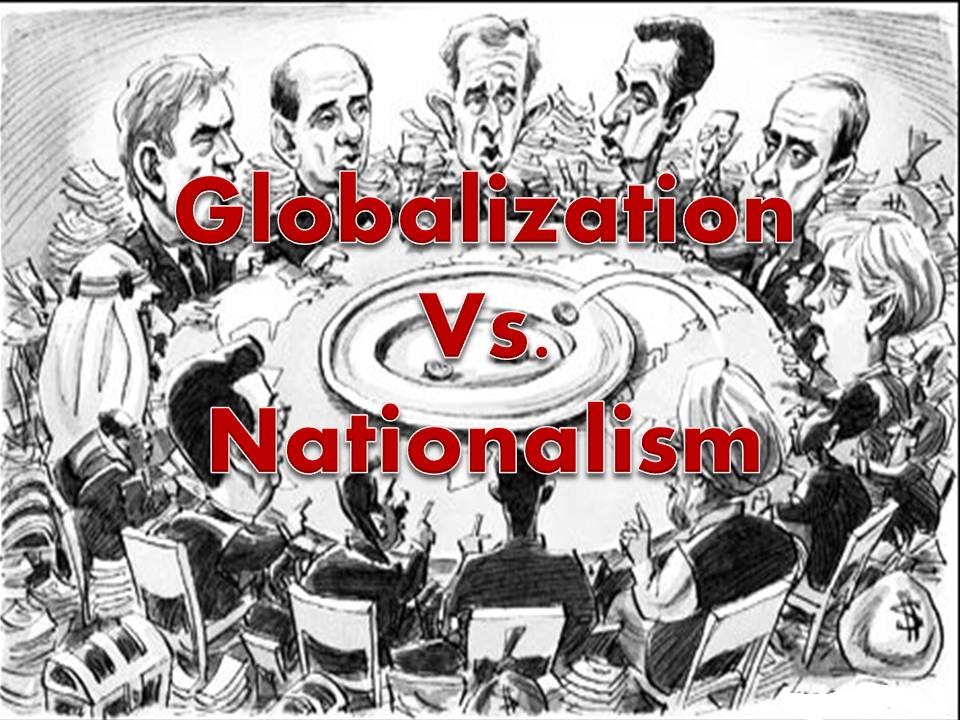Home » Posts tagged 'BC'
Tag Archives: BC
A CRITIQUE OF GLOBALISM

Kofi Annan, the former Secretary-General of the United Nations, has stated that disagreeing with globalism is like disagreeing with “the laws of gravity.” Similarly, new French President, Emmanuel Macron, another supporter of globalism, wishes to deregulate France’s ailing industry and boost freedom of movement and trade. Donald Trump’s election to the US Presidency, and the UK’s decision to leave the European Union, however, have challenged the presumed supremacy of globalism as a political force.
The roots of globalism can be traced back to the 2nd Century BC when the formation of the Silk Road facilitated the trade of silk, wool, silver, and gold between Europe and China. It wasn’t until the 20th century, however, that the idea gathered momentum. Following the Second World War, world power was to be split between America, representing the capitalist west, and the Union of Soviet Socialist Republics, representing the communist east. Following the collapse of the Soviet Union in 1991, America took it upon herself to create an undivided, democratic, and peaceful Europe.
Of course, the aim for an undivided Europe, indeed an undivided world, existed long before the collapse of the Soviet Union. In 1944. Allied delegates, met at Bretton Woods, New Hampshire, to establish an economic system based on open markets and free trade. Their idea gathered momentum. Today, the Monetary Fund, World Bank, and, the World Trade Centre all exist to unite the various national economies of the world into a single, global economy.
In 1950, the French foreign minister, Robert Schuman, proposed pooling Western Europe’s coal and steel producing countries together. Originally, Schuman’s objective had been to unite France with the Federal Republic of Germany. In the end, however, the Treaty of Paris would unite Belgium, France, West Germany, Italy, Luxembourg, and the Netherlands in the European Coal and Steel Community. By 1957, the Treaty of Rome had been used to create the European Economic Community.
Globalism is an ideology which seeks to form a world where nations base their economic and foreign policies on global, rather than national, interests. It can be viewed as a blanket term for various phenomena: the pursuit of classical liberal and free market policies on the world stage, Western dominance over the political, cultural, and economic spheres, the proliferation of new technologies, and global integration.
John Lennon’s Imagine, speaking of ‘no countries’, ‘no religion’, and a ‘brotherhood of man’, acts as an almost perfect anthem for globalism. Your individual views on globalism, however, will depend largely on your personal definition of a nation. If you support globalism it is likely you believe a nation to be little more than a geographical location. If you are a nationalist, however, it is likely you believe a nation to be the accumulation of its history, culture, and traditions.
Supporters of John Lennon’s political ideology seem to suffer from a form of self-loathing. European heritage and culture are not seen as something worth celebrating, but as something to be dismissed. And it appears to be working: decades of anti-nationalist, anti-Western policies have stripped many European nations of their historical and cultural identities. In the UK, there have been calls to remove the statue of Cecil Rhodes – an important, yet controversial figure. In other countries, certain areas are have become so rife with ethnic violence they are considered ‘no-go’ zones.

Perhaps, it is the result of “white man’s burden”, Rudyard Kipling’s prophetic 1899 poem about the West’s perceived obligation to improve the lot of non-westerners. Today, many white, middle-class elites echo Kipling’s sentiments by believing that it to be their duty to save the world. These people are told at charity events, at protests, at their universities, and by their media of their obligation to their ‘fellow man.’ When it comes to immigration, they believe it to be their responsibility to save the wretched peoples of the world by importing them, and their problems, to the West.
By contrast, nationalism champions the idea that nations, as defined by a common language, ethnicity, or culture, have the right to form communities based on a shared history and/or a common destiny. The phenomenon can be described as consisting of patriotic feelings, principles, or efforts, an extreme form or patriotism characterised by feelings of national superiority, or as the advocacy of political independence. It is primarily driven by two factors. First, feelings of nationhood among members of a nation-state, and, two, the actions of a state in trying to achieve or sustain self-determination. In simplest terms, nationalism constitutes a form of human identity.
One cannot become a citizen of a nation merely by living there. Citizenship arises from the sharing of a common culture, tradition, and history. As American writer Alan Wolfe observed: “behind every citizen lies a graveyard.” The sociologist Emile Durkheim believed people to be united by their families, their religion, and their culture. In Suicide: a Study in Sociology, Durkheim surmises:
“It is not true, then, that human activity can be released from all restraint. Nothing in the world can enjoy such a privilege. All existence being a part of the universe is relative to the remainder; its nature and method of manifestation accordingly depend not only on itself but on other beings, who consequently restrain and regulate it. Here there are only differences of degree and form between the mineral realm and the thinking person.’ Man’s characteristic privilege is that the bond he accepts is not physical but moral; that is, social. He is governed not by a material environment brutally imposed on him, but by a conscience superior to his own, the superiority of which he feels.” – Suicide: a Study in Sociology (pg. 277)
Globalism has primarily manifested itself through economic means. In the economic sense, globalism began in the late 19th, early 20th centuries with the invention of the locomotive, the motor-car, the steamship, and the telegraph. Prior to the industrial revolution, a great deal of economic output was restricted to certain countries. China and India combined produced an economic output of fifty-percent, whilst Western Europe produced an economic output of eighteen percent. It was the industrial revolution of the 19th century, and the dramatic growth of industrial productivity, which caused Western Europe’s economic output to double. Today, we experience the consequences of globalism every time we enter a McDonalds Restaurant, call someone on our mobile phones, or use the internet.
Philip Lower, the Governor of the Reserve Bank of Australia, told a group of businessmen and women at the Sydney Opera House that Australia was “committed to an open international order.” Similarly, the Nobel Prize-winning economist, Amartya Sen, argued that globalisation had “enriched the world scientifically and culturally, and benefited many people economically as well.” It is certainly true that globalisation has facilitated the sharing of technological, cultural, and scientific advances between nations. However, as some economists, like Joseph Stiglitz and Ha-Joon Chang, have pointed out: globalisation can also have the effect of increasing rather than reducing inequality. In 2007, the International Monetary Fund admitted that investment in the foreign capital of developing countries and the introduction of new technologies has had the effect of increasing levels of inequality. Countries with larger populations, lower working and living standards, more advanced technology, or a combination of all three, are in a better position to compete than countries that lack these factors.
The underlying fact is that globalism has economic consequences. Under globalisation, there is little to no restrictions on the movement of goods, capital, services, people, technology, and information. Among the things championed by economic globalisation is the cross-border division of labour. Different countries become responsible different forms of labour.
The United Nations has unrealistically asserted globalism to be the key to ending poverty in the 21st Century. The Global Policy Forum, an organisation which acts as an independent policy watchdog of the United Nations, has suggested that imposition of global taxes as a means of achieving this reality. These include taxes on carbon emissions to slow climate change, taxes on currency trading to ‘dampen instability in the foreign exchange markets’, and taxes to support major initiatives like reducing poverty and hunger, increasing access to education, and fighting preventable diseases.
In one sense, the battle between globalism and nationalism can be seen as a battle between ideology and realism. Globalism appears committed to creating a ‘brotherhood of man.’ Nationalism, on the other hand, reminds us that culture and nationality form an integral part of human identity, and informs us they are sentiments worth protecting. The true value of globalism and nationalism come not from their opposition, but from how they can be made to work together. Globalism has the economic benefit of allowing countries to develop their economies through global trade. It is not beneficial, however, when it devolves into open-border policies, global taxes, or attacks on a nation’s culture or sovereignty. Nationalism, by the same token, has the benefit of providing people with a national and cultural identity, as well as the benefits and protections of citizenship. Nationalism fails when it becomes so fanatical it leads to xenophobia or war. The answer, therefore, is not to forsake one for the other, but to reconcile the two.
